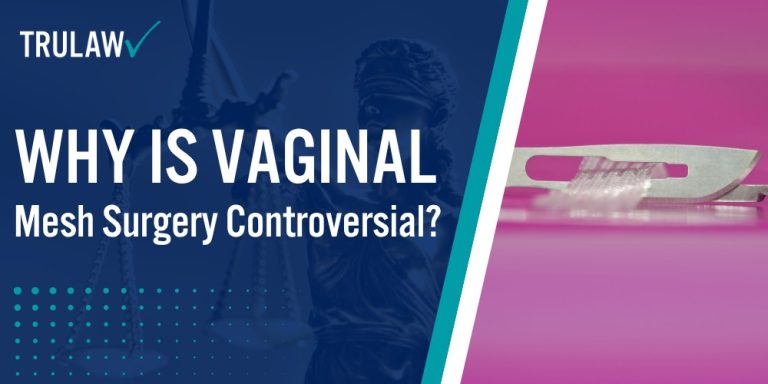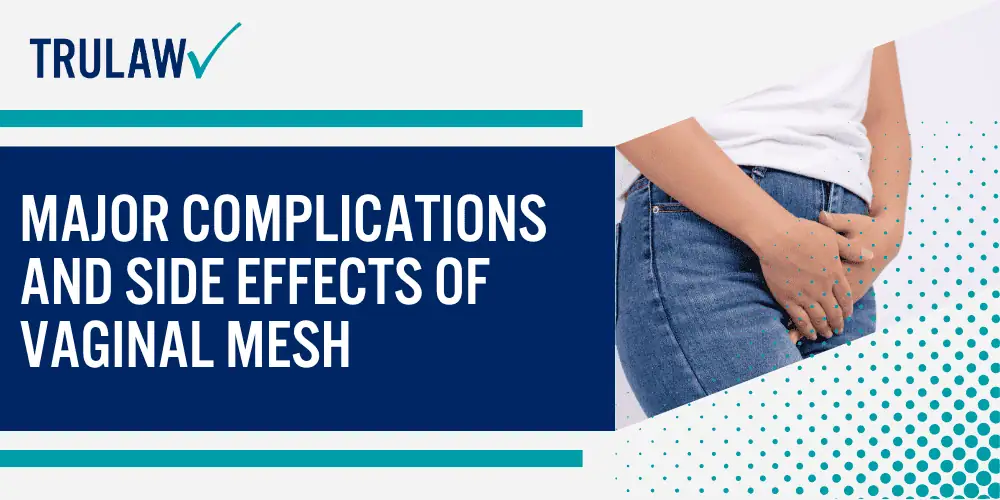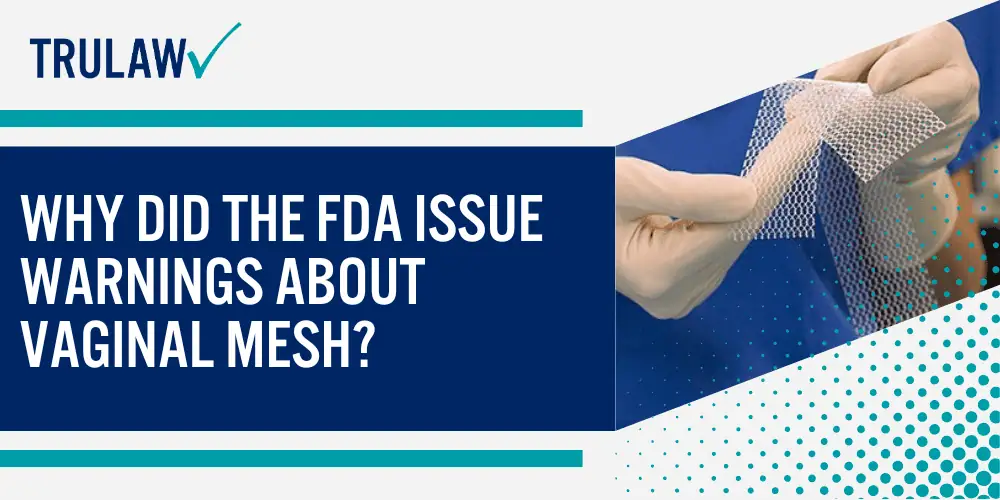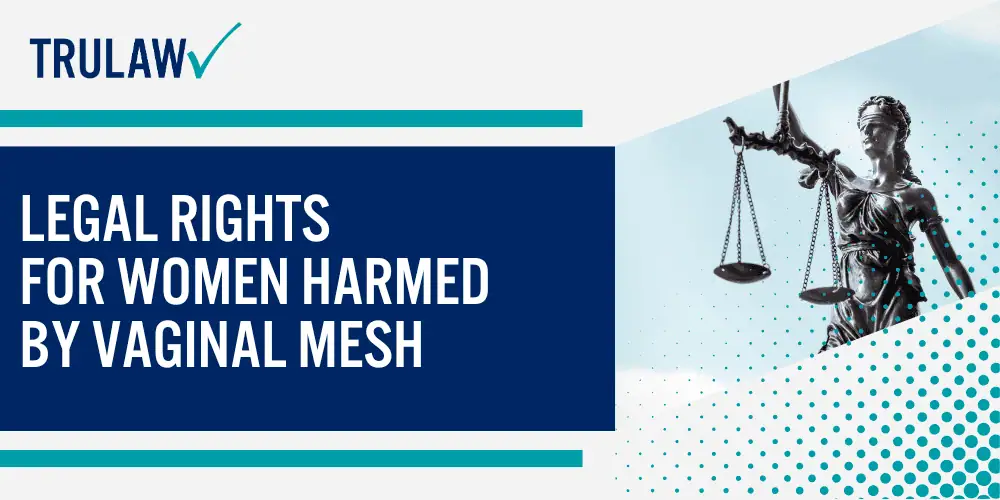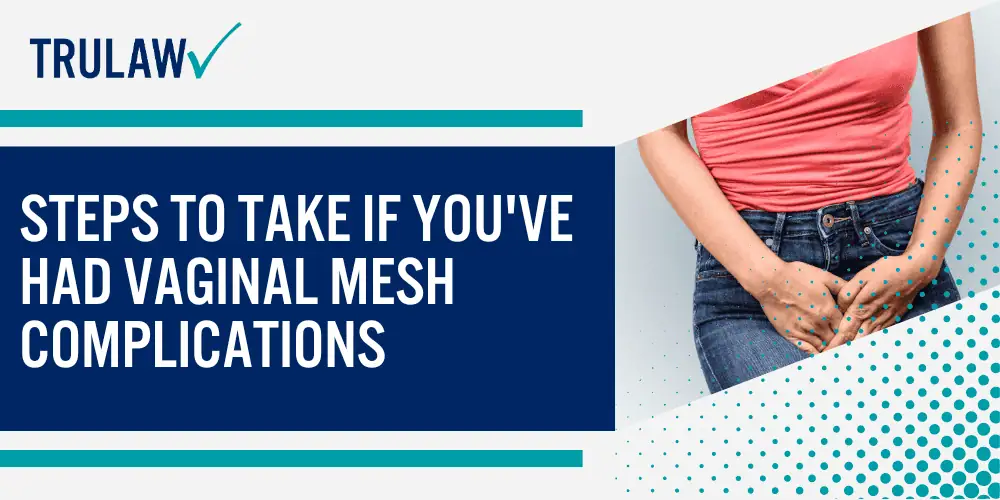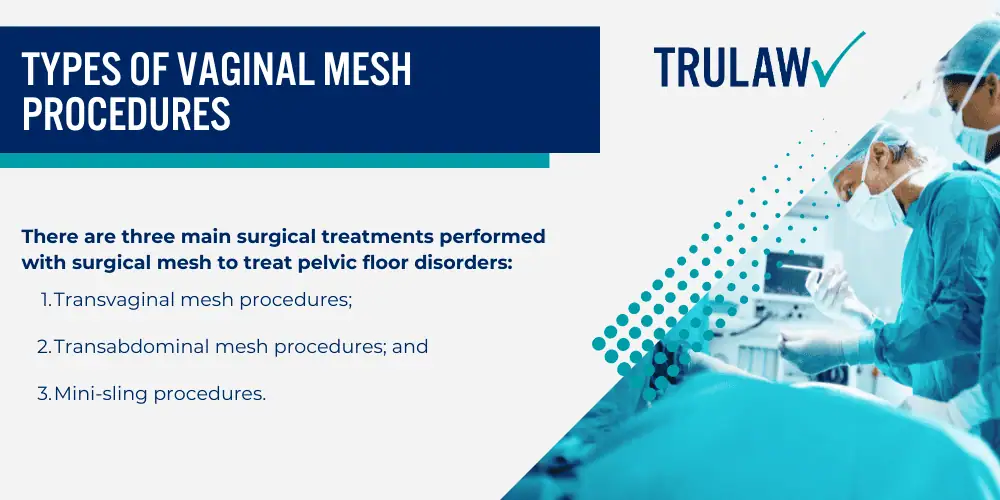
There are three main surgical treatments performed with surgical mesh to treat pelvic floor disorders:
- Transvaginal mesh procedures;
- Transabdominal mesh procedures; and
- Mini-sling procedures.
Transvaginal mesh procedures involve placing mesh through vaginal incisions to treat anterior or posterior wall prolapse.
Transabdominal procedures access the pelvic area through abdominal incisions for apical prolapse repair.
Mini-sling procedures specifically address stress urinary incontinence using smaller mesh strips placed beneath the urethra.
Most surgical mesh made of synthetic materials can be found in knitted mesh or non-knitted sheet forms.
Each procedure type targets different pelvic floor conditions.
Transvaginal approaches primarily treat cystocele (bladder prolapse) and rectocele (rectal prolapse), while transabdominal methods address uterine or vaginal vault prolapse.
Most patients with pelvic organ prolapse are asymptomatic.
Prolapse symptoms become more bothersome as the bulge protrudes past the vaginal opening.
Materials Used in Vaginal Mesh Implants
The synthetic materials used can be either absorbable, non-absorbable, or a combination of absorbable and non-absorbable materials.
Most vaginal mesh products use polypropylene, a permanent synthetic plastic material that remains in the body indefinitely.
Some manufacturers also produce mesh from biological materials derived from animal tissues.
Surgeons have used surgical mesh since the 1950s to repair abdominal hernias; in the 1970s, gynecologists specializing in female pelvic medicine began implanting surgical mesh for the abdominal repair of POP and, in the 1990s, for the transvaginal repair of POP.
Major manufacturers historically included Boston Scientific, Coloplast, and Ethicon, producing products like Uphold Lite, Xenform, and ProteGen.
On April 16, 2019, after reviewing their premarket approval (PMA) applications, the FDA ordered all manufacturers of surgical mesh intended for transvaginal repair of pelvic organ prolapse (Boston Scientific Uphold Lite, Boston Scientific Xenform, and Coloplast Direct Fix Anterior) to stop selling and distributing their products immediately.
